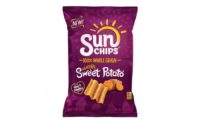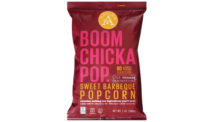As GMOs, gluten intolerance and ‘no artificial additives’ gain heavy traction in the food arena, snack manufacturers and commercial bakers continue to showcase new clean-label pursuits with more transparency. Still, consumer demands for clean labels are incredibly varied.
As GMOs, gluten intolerance and “no artificial additives” gain heavy traction in the food arena, consumers are becoming increasingly selective about the products and ingredients that land in their shopping carts. “Over the past 12 months, the term ‘clean label’ appears to have worked its way into the vocabulary of a growing number of natural food consumers, retailers, manufacturers and ingredient suppliers,” states Amy Lotker, owner and executive vice president of marketing and sales at Better For You Foods LLC, Delray Beach, FL.
Having a clean label can mean a product is minimally processed, boasts recognizable or minimal ingredients, or is allergen-, GMO- or pesticide-free. Shoppers’ demands for clean label, then, are incredibly varied and can apply to a number of product attributes.
“Simply put, consumers want clean labels to be void of unfamiliar or chemical-sounding additives, with fewer ingredients overall,” adds Lotker. “And they want to be knowledgeable about every ingredient on the product label.”
The simpler, the better
One common thread among a number of products identified as clean-label is a simple ingredient list. “To Bare Snacks, ‘clean-label’ means delicious food with ingredients you would find in your kitchen and nothing artificial ever,” explains Paula Connelly, vice president of innovation at Bare Snacks, San Francisco. “We call this our ‘kitchen cupboard’ test. If you can’t find it in your kitchen cupboard, it will not be on our ingredient deck.”
Bare Snacks keeps it simple by using whole food ingredients, and also ups the health ante by baking (not frying) its All-Natural Crunchy Apple Chips, Organic Crunchy Apple Chips and Crunchy Coconut Chips. “We bake whole fruit using special ovens that caramelize the natural sweetness of the fruit and bake in crunchy goodness,” Connelly says. “This provides a sweet and crunchy combination without adding flavors or preservatives.” The chips are also free of gluten, wheat, allergens, refined sugar, preservatives, cholesterol and trans-fats; are Non-GMO Project-verified; and are a good source of dietary fiber.
“To Better For You Foods, clean label means transparency,” agrees Lotker. “We want consumers to be able to quickly identify the whole, nutritious foods we include in our products. It’s also important that consumers seeking foods that are free from allergens, such as gluten, and can quickly identify precisely what’s included and omitted in each product they consider for purchase.”
Better For You Foods uses nonGMO-certified ingredients, and its gluten-free offerings are certified by the Gluten-Free Certification Organization (GFCO), a third-party verifier that requires yearly inspections of ingredients, products and plants. The company’s thin-crust, gluten-free and sprouted frozen pizzas are also certified by the Whole Grain Council, and each includes 10-39 g. of whole grains per serving. Finally, every product in its line contains no preservatives, peanuts or other nuts, soy or eggs.
Basic ingredients are front and center at Partners, a Tasteful Choice company, in Kent, WA, where each ingredient goes through the company’s rigorous vendor approval process. Partners offers flatbreads, deli and snack crackers, cookies, granola and more. It says it stays away from stabilizers, dough conditioners, preservatives and hydrogenated oils, and each ingredient is also kosher and nonGMO.
“When we cannot find what we want in terms of quality, we don’t adapt our recipe,” adds Cara Figgins, executive vice president. “We come up with a solution that meets our core value. We buy a zester and juicer, and make our own lemon ingredients for our lemon cookies.”
Love & Quiches Gourmet, Freeport, NY, offers layer cakes, cheesecakes, brownies, bars, quiche, custom desserts and more, with an eye to natural ingredients and a better nutrient profile. The company is well into its program to convert many of its ingredients to all-natural and has added high-protein and low-fat claims to its roster through the additions of ingredients like Greek yogurt and egg whites. The company also carries kosher and halal certifications.
The ‘free-from’ movement
In addition to artificial additives, allergens and GMOs are increasingly on the chopping block for companies pursuing a clean label.
“Five years ago, consumers were very concerned about diets, low-fat, low-carb and reduced calories,” notes Joel Warady, chief sales and marketing officer at Enjoy Life Foods, Schiller Park, IL, an allergy-friendly brand. “Today, consumers have become smarter shoppers and more educated decision makers. They read labels with a more watchful eye, and it’s their desire to make certain that they know what ingredients are being ingested and what the long-term positive impact better-for-you products can have on their overall life.”
To this end, Enjoy Life products make the claim of being made with “No Artificial Anything,” which Warady says better explains the company’s standpoint than an “all natural” claim, which can sometimes be confusing. Enjoy Life’s Soft Baked and Crunchy cookies, cereals, granola, bars and seed and fruit mixes are also verified through the Non-GMO Project, and are kosher- and halal-certified, made in a certified and dedicated gluten-free and nut-free facility (see SF&WB’s articles on Enjoy Life Foods in the May 2014 issue), and part of the Whole Grain Council.
At Elevation Brands LLC, Framingham, MA, Ian’s branded products are formulated with a strong eye toward allergy-friendliness for the entire family, with no artificial flavors, colors or preservatives. “Our consumers demand a clear understanding of what ingredients are in their food,” explains Chuck Marble, CEO, “because if they make a mistake in their purchase, it can land them in the hospital or even cause death.”
Ian’s recently launched a line of Culinary Creations, which includes allergy-friendly and gluten-free Italian croutons, stuffing, brown rice bread crumbs and other coating systems for “clean” chefs to use at home. Ian’s extensive snack line includes onion rings, cookies, French fries and more, in addition to breakfast, dessert and entree items.
Bean & Rice Chips from Beanfields, Los Angeles, are plant-based, gluten-free chips made with beans as the primary ingredient. They boast 4 g. of fiber and protein per 1-oz. serving, but are also labeled as free from many ingredients causing consumer concerns. “Everything we make is nonGMO-verified and certified gluten-free [by the Gluten Intolerance Group of North America],” says co-founder and executive vice president of culture and sustainability, Liza Braude-Glidden. “Everything we make avoids all of the top eight allergens that cause 90% of food allergies. And everything is dairy-free and vegan, so no animal products are used in our snacks. And we never use corn as an ingredient.” The company recently added Barbecue and Ranch flavors to its Nacho, Sea Salt, Pico de Gallo, Salt N’ Pepper and Unsalted varieties.
Look no further than the company’s name to see that HomeFree LLC, Windham, NH, offers products free from allergens, trans-fat and other ingredients consumers are looking to avoid. “Although there are certifications for being gluten-free, there aren’t for being free from allergens,” says Jill Robbins, president. “We therefore make an effort to clearly communicate on our packages the practices we use to ensure that ‘free-from’ really means free-from.”
Robbins adds that HomeFree sources ingredients to be allergen-free and tests for allergens in-house. HomeFree offers foodservice Chocolate Chip, Double Chocolate Chip, Oatmeal and Vanilla cookies, cookies in a variety of sizes and configurations, as well as baking ingredients like oat flour, vegan chocolate chips, natural cocoa powder and more. While some products carry the U.S. Department of Agriculture (USDA) Organic label, the line in its entirety is nonGMO-certified.
What’s down the road?
As for the future of clean labeling, Lotker hopes the movement will continue to grow. “It seems like a natural (pardon the pun) progression that consumers seek a ‘back to basics’ approach,” she says. “Respected health professionals have been encouraging people for years to become more accountable for the foods they consume. How can you be accountable if you’re unaware of the ingredients in the products? The need for clean labels forces natural-food manufacturers to become more ambitious about the ingredients we choose, and that’s a good thing. Consumers deserve to know as much as possible about every product they choose for themselves and their families.”












